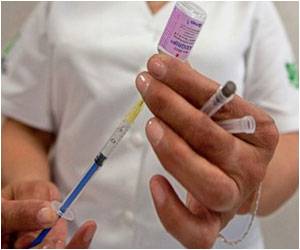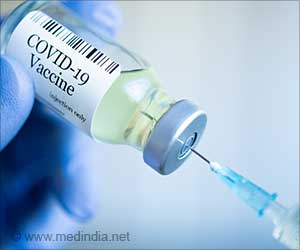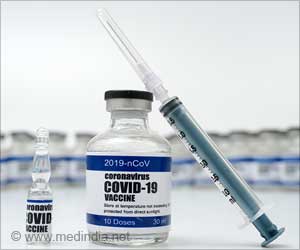- mRNA vaccines - Gennova - (https://gennova.bio/mrna-vaccines/)
- Dr. Reddy's receives DCGI approval for trial of Sputnik V vaccine in India - Clinical Trials Arena - (https://www.clinicaltrialsarena.com/news/reddys-dcgi-approval-india/)
- Covaxin, Covishield not for everyone: Manufacturers list who should avoid the COVID vaccines - The Print - (https://theprint.in/health/covaxin-not-for-everyone-says-bharat-biotech-lists-categories-of-people-who-should-avoid-it/588103/)
- CEPI partners with Biological E. Limited to advance development and manufacture of COVID-19 vaccine candidate - Biological E. Limited - (https://www.biologicale.com/news.html)
- Zydus Cadila starts enrolment for phase 3 trial of covid jab - Mint - (https://www.livemint.com/companies/news/zydus-cadila-starts-enrolment-for-phase-3-trial-of-covid-19-vaccine-11611130944188.html)
- Coronavirus India live updates - The Indian Express - (https://indianexpress.com/article/india/covid-india-live-updates-vaccination-7153711/?utm_source=dailyhunt)
- 580 adverse reactions, two deaths not linked to vaccine: Centre on day 3 - NDTV - (https://www.ndtv.com/india-news/580-adverse-reactions-two-deaths-not-linked-to-vaccine-centre-on-day-3-2354355)
- This is how India has planned Covishield, Covaxin storage - Business Insider (India) - (https://www.businessinsider.in/india/news/this-is-how-india-has-planned-covishield-covaxin-storage/articleshow/80298694.cms)
Indian COVID-19 Vaccination Program
India’s COVID-19 vaccination program was launched on Saturday 16 January 2021. As of 21 January 2021, India had vaccinated nearly 1 million healthcare workers across 27 States and Union Territories in the first phase of the world’s largest COVID-19 vaccination program. On the same day, India’s caseload was 10.6 million with 15,223 new infections and 10.2 million recovered cases. This is equivalent to an overall national COVID-19 recovery rate to 96.75 percent. At the same time point, the death toll in India was 152,869 with 151 daily new fatalities. This indicates that the overall national COVID-19 case fatality rate is 1.44 percent.
Which Vaccines are Being Used in India’s COVID-19 Vaccination Program?
The two COVID-19 vaccines that are being used in the program are Bharat Biotech’s indigenously developed Covaxin and Oxford-AstraZeneca’s Covishield, manufactured in India by the Serum Institute of India, Pune. Besides taking care of domestic needs, India has also distributed over 1 million doses of these vaccines to Nepal, 2 million to Bangladesh, 150,000 to Bhutan, and 100,000 to Maldives, based on its “Neighborhood First” Policy. The basic characteristics of these two vaccines are presented in Table 1.
Table 1: Characteristics of Covishield and Covaxin COVID-19 Vaccines
|
Vaccine Characteristics |
Covishield |
Covaxin |
|
Developer |
Oxford University |
National Institute of Virology, Pune |
|
Manufacturer |
AstraZeneca/Serum Institute of India |
Bharat Biotech |
|
Type |
Non-replicating viral vector |
Inactivated (killed) |
|
Doses |
2 (0, 28 days) |
2 (0, 14 days) |
|
Route |
Intramuscular (IM) |
Intramuscular (IM) |
|
Clinical Trial Status |
Phase 3 (completed) |
Phase 3 (ongoing) |
|
Efficacy |
70.4% |
Not yet available |
|
Storage temperature |
2-8°C |
2-8°C |
|
Doses procured by Government of India |
11 million |
5.5 million |
|
Cost per dose |
INR 200 |
INR 206 |
Adverse Events Following Immunization (AEFI): A Major Issue with Indian COVID-19 Vaccines
The occurrence of adverse events following immunization (AEFI) is increasingly becoming a major issue in the Indian COVID-19 vaccination program. As of 18 January 2021, there have been 580 cases of AEFI. Of these 7 people required hospitalization. There have been two deaths following vaccination, but these were not linked to the vaccines.
Some of the side effects that have been reported for Bharat Biotech’s Covaxin include body ache, headache, fever, malaise, weakness, rashes, nausea, vomiting, stiffness in upper arm and weakness in injection arm, among others.
Besides these side effects, Bharat Biotech has also indicated that there is a remote chance of occurrence of severe allergic reactions, such as anaphylaxis following vaccination with Covaxin.
In this context, on 19 January 2021, Bharat Biotech identified individuals who should not take Covaxin and accordingly, published a factsheet. The various side effects of Covishield and Covaxin have been presented in Table 2.
Table 2: Side Effects of Covishield and Covaxin
|
Covishield |
Covaxin |
|
Tenderness, pain, warmth, redness, itching, swelling or bruising at the injection site and/or generally feeling unwell |
Injection site pain |
|
Feeling tired (fatigue) |
Injection site swelling |
|
Chills and feeling feverish |
Injection site redness |
|
Headache |
Injection site itching |
|
Feeling sick (nausea) |
Stiffness in the upper arm |
|
Being sick (vomiting) |
Weakness in injection arm |
|
Joint pain or muscle ache |
Body ache |
|
A lump at the injection site |
Headache |
|
Fever |
Fever |
|
Flu-like symptoms – high temperature, sore throat, runny nose, cough and chills |
Malaise |
|
Feeling dizzy, decreased appetite, abdominal pain |
Weakness |
|
Enlarged lymph nodes |
Rashes |
|
Excessive sweating, itchy skin or rashes |
Nausea/vomiting |
Individuals in Whom Covishield and Covaxin is Contraindicated
Since the side effects of the two vaccines differ with respect to the types and severity, the individuals who should avoid the vaccines also differ accordingly. The individuals who should avoid Covishield and Covaxin are listed in Table 3.
Table 3: Contraindications for Covishield and Covaxin
|
Covishield |
Covaxin |
|
Severe allergic reaction after a previous dose of the vaccine |
History of allergies |
|
Severe allergic reaction to any ingredient of the vaccine |
Fever |
|
|
Bleeding disorder or use of blood thinners |
|
Immunocompromised individuals or use of immunosuppressants |
|
|
Pregnant women |
|
|
Breastfeeding women |
|
|
Prior immunization with a different COVID-19 vaccine |
|
|
Any other serious health related issues, as determined by the vaccinator/officer supervising vaccination |
New COVID-19 Vaccines that Could be Available Soon
There are four more COVID-19 vaccines that are currently being evaluated in pre-clinical/clinical trials in India. These could soon become available, which will increase India’s vaccine portfolio to six, thereby offering more vaccine options to choose from. These are briefly highlighted in Table 4.
Table 4: New COVID-19 Vaccines in the Pipeline
|
Vaccine Characteristics |
ZyCoV-D |
Sputnik V |
HGC019 |
BECOV2 |
|
Developer/Manufacturer |
Zydus Cadila |
Gamaleya Research Institute of Epidemiology and Microbiology, Russia / Dr. Reddy’s Laboratories |
Gennova / HDT Biotech Corporation, Seattle, USA |
Biological E / Coalition for Epidemic Preparedness Innovations (CEPI) |
|
Type of Vaccine |
DNA |
Non-replicating viral vector |
mRNA |
Protein subunit |
|
Dose |
3 (0, 28, 56 days) |
2 (0, 21 days) |
Not available |
2 (0, 28 days) |
|
Route |
Intradermal (ID) |
Intramuscular (IM) |
Not available |
Intramuscular (IM) |
|
Trial Phase |
Phase 3 |
Phase 3 |
Pre-clinical |
Phase 1/2 |
COVID-19 Vaccines: Points to Keep in Mind
- Duration of Immunity Unknown: It is not known for sure how long the protective antibodies that are generated by vaccination last in the body. Hence, the duration of protection is unknown
- Risk of Infection Remains: Even after vaccination, a person can become infected. The antibodies developed as a result of vaccination will protect against the virus only when it enters the bloodstream
- Public Health Measures Still Essential: In order prevent acquiring fresh infections, as well as spreading it to others, it is essential to continue to wear masks, practice hand hygiene, maintain physical distancing, and practice respiratory etiquette
- Vaccines May be Ineffective Against New Strains: It is not known whether the current COVID-19 vaccines will be able to confer a high degree of protection against the new strains of SARS-CoV-2, such as B.1.1.7 from UK and N501Y from South Africa
Although the Indian COVID-19 vaccination program has had a great start, there are still challenges ahead, as this is the first program involving adult immunization, which inherently has many problems. Also, many side effects have started cropping up, which is making it very difficult to convince people about vaccine safety. However, there is still a glimmer of hope and a reason to cheer as new vaccine candidates with improved quality are on the horizon and could be available very soon.












